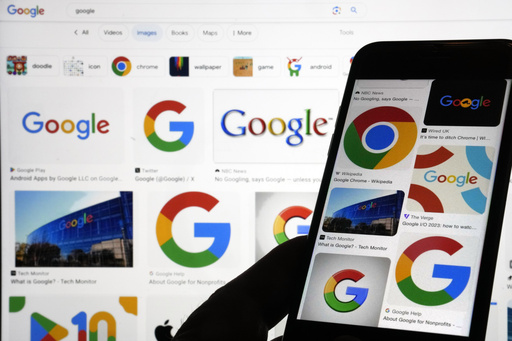
Google filed an appeal on Monday to challenge a jury’s verdict labeling its Android app store as an illegal monopoly, as well as to halt the penalties outlined by a federal judge aimed at addressing the alleged misconduct. The case, brought forth by Epic Games, asserts that the Google Play Store has been exploiting its dominant position in the Android app marketplace. Epic urged the court to uphold both the ruling and the penalties to encourage innovation and lower prices in the industry.
During a nearly hour-long argument at the Ninth Circuit Court of Appeals in San Francisco, attorney Jessica Ellsworth defended Google’s position, claiming that the trial judge erred in defining the market differently than it was in a previous antitrust case involving Apple. Ellsworth also contended that the case should not have been decided by a jury since Google had requested a judge to oversee the proceedings, mirroring the approach taken in the Apple trial.
Epic Games, the developer behind the hit video game Fortnite, initiated separate antitrust lawsuits against both Apple and Google simultaneously in August 2020, resulting in very different trial outcomes. In contrast to the jury’s decision in the Google case, U.S. District Judge Yvonne Gonzalez-Rogers predominantly sided with Apple in a 2021 ruling that recognized both the Play Store and Apple’s App Store as part of a wider competitive landscape.
Ellsworth argued that U.S. District Judge James Donato allowed Epic to redirect the Google case into what she termed a “do-over,” omitting the Apple App Store as a competitor when defining the market. According to her, “You can’t just lose an issue that was fully litigated the first time (in the Apple case) and then pretend it didn’t happen.” She characterized the competition between Google and Apple as an essential check on their app market practices in the realm of smartphones.
However, the judges expressed skepticism about Google’s market definition argument. Judge Danielle J. Forrest remarked on the clear differences in market dynamics between Android and Apple platforms, while Judge Gabriel Sanchez pointed out that Google could still be monopolistic even while competing vigorously with Apple in operating systems.
Epic attorney Gary Bornstein responded to Google by framing their claims as desperate attempts to protect a system that benefits its profits, with commission fees ranging from 15% to 30% applied to in-app purchases made through the Play Store. The penalties imposed by Judge Donato, initially decided in October and later paused during the appeal process, would mandate significant changes in the operation of the Play Store, allowing competitors access to its vast library of 2 million apps, likely resulting in reduced commission rates.
Though the appeals court has not indicated when they will hand down a ruling, such decisions typically take several months. In addition to the Play Store case, Google faces other potential consequences, including the possibility of being required to divest its Chrome web browser, after a ruling in a separate antitrust case found its search engine to be an illegal monopoly.
Throughout the two-hour session, Bornstein emphasized that Google did not accurately frame the Android app market during the trial and reminded the judges that reversing a jury’s verdict and the subsequent decisions made by lower courts should be a high bar to achieve. “The benefit of the doubt does not go to the wrongdoer,” Bornstein stated.
The judges raised concerns regarding Donato’s choice to retain a jury trial after changes to the case occurred shortly before the Epic trial, following Google’s settlements with multiple state attorneys general and another prominent app developer, Match Group. An agreed-upon jury trial had been reached prior to those settlements, but Google sought a judge-led outcome post-settlement, a request that was denied.
At one point, Judge Forrest suggested the possibility of treating the jury’s verdict as akin to that of an advisory panel and returning the case to Donato for a more detailed ruling. Ellsworth supported this idea, noting the substantial length of the Apple app store case ruling, in stark contrast with the simplicity of the jury’s determination in the Google trial, which consisted of eight questions and merely 14 words defining a relevant market.
Conversely, Bornstein encouraged the appeals court to give Donato what he referred to as a “homework assignment,” which would extend Google’s opportunity to benefit from what he described as illicit activity.

